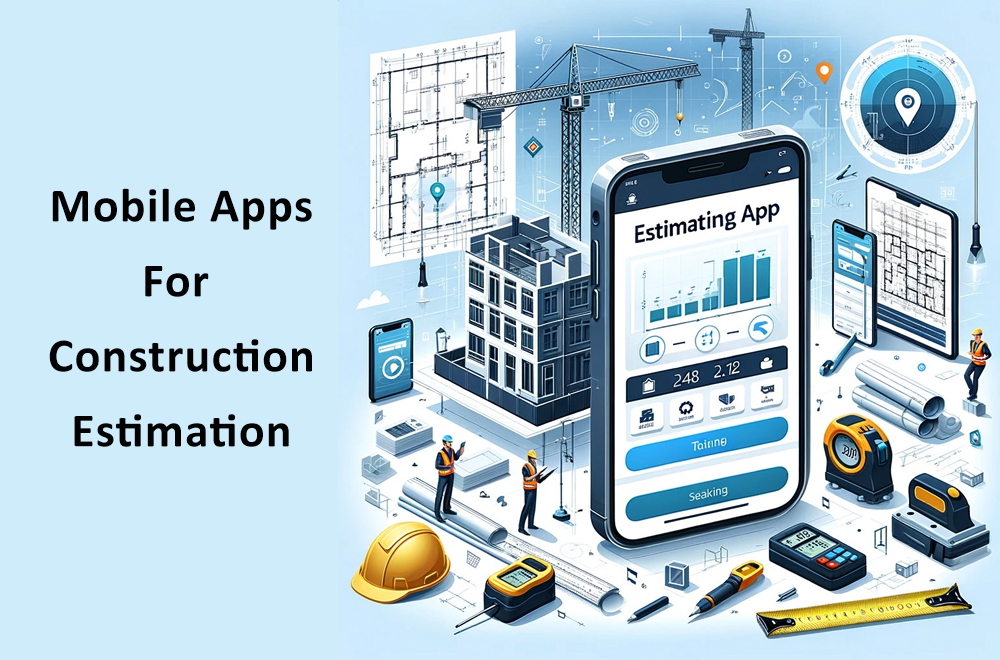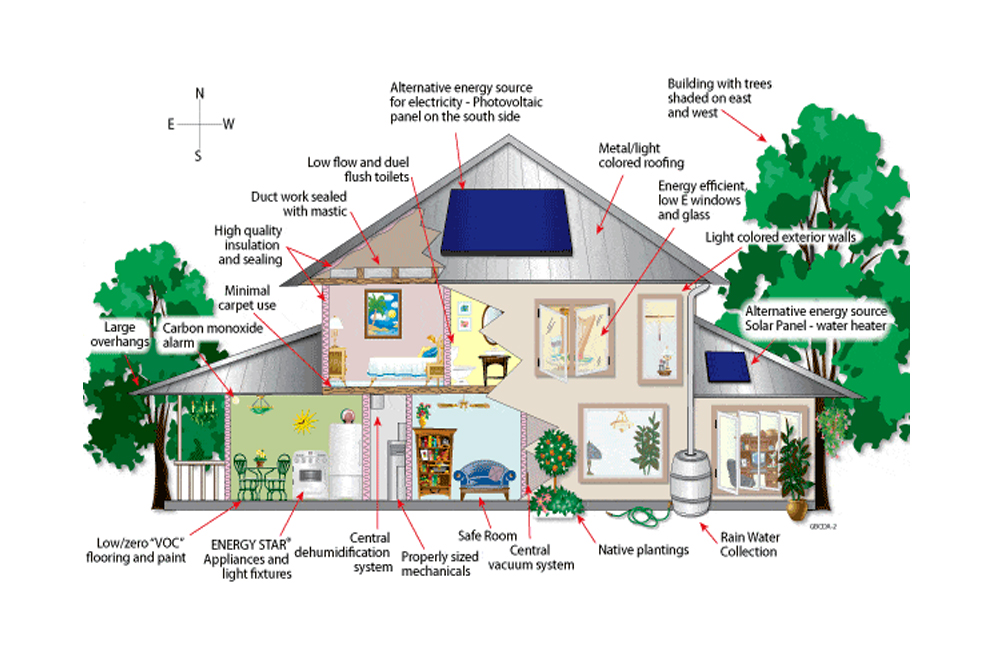Construction cost estimation plays a pivotal role in project success, influencing feasibility, budget, and profitability. Move beyond traditional methods with the transformative power of artificial intelligence (AI). It uses data-driven models, machine learning, and natural language processing to estimate construction costs accurately. This article will address the impact, benefits, and challenges of using AI in construction cost estimation. We will explore the secrets behind AI-powered models and real-world examples of AI applications, offering insights that will revolutionize the way you approach cost estimation in the construction industry.
Table of Contents
ToggleSignificance of Cost Estimation in Construction Projects
Accurate construction cost estimation stands as the basis for successful project management. The importance of precise cost estimation must be considered, as it directly influences project feasibility, budgeting, and overall profitability.
Importance for Project Feasibility, Budgeting, and Profitability
Construction projects operate within defined budgets, and these budgets determine the feasibility of the entire venture. A meticulous cost estimation process ensures that the projected expenses align with the available budget, preventing financial overruns and ensuring the project’s viability. Moreover, precise cost estimation is a linchpin for effective budgeting, allowing stakeholders to allocate resources efficiently and make informed financial decisions throughout the project lifecycle.
The profitability of a construction project depends on accurate cost estimation. It forms the basis for pricing strategies, helping businesses set competitive rates while ensuring a reasonable profit margin. A well-calibrated cost estimation not only safeguards against financial setbacks but also positions the project for sustained success.
Challenges Associated with Traditional Methods
Traditionally, construction cost estimation relied on manual calculations, spreadsheets, and software tools. While these methods have been the industry norm, they come with inherent challenges. Manual calculations are time-consuming and prone to human error, leading to inaccuracies in the estimated costs. Spreadsheets, while more advanced, can still be cumbersome to manage and may not fully capture the complexity of modern construction projects.
Enterprises often need to work on the consistency arising from diverse estimation methodologies employed across different projects. These challenges highlight the need for a paradigm shift in construction cost estimation methodologies.
The Future of AI in Construction Estimation
Artificial intelligence (AI) is ushering in a transformative era in construction cost estimation, revolutionizing the way industry professionals approach this critical aspect. The integration of AI brings forth a myriad of applications that streamline processes and enhance the accuracy of cost predictions. Construction robots and automation are expected to increase by over 25% per year.
Artificial intelligence (AI) can help estimate construction costs by analyzing large amounts of data. This can lead to faster and more accurate cost predictions than traditional methods. It can:
- Compare the costs of similar projects.
- Factor in material prices, labor rates, and other variables like weather or market trends.
- Reduce human errors, biases, and judgments.
- Incorporate more variables and factors that affect cost performance.
Applications of AI in Construction Cost Estimation
AI’s applications in construction cost estimation are diverse and impactful. It leverages advanced technologies to analyze and process vast amounts of data, providing insights that were previously unattainable. From historical project data to current market trends, AI mines information to refine cost predictions. Machine learning algorithms compare the costs of similar projects, factor in variables like material prices and labor rates, and adapt to new data over time.
AI can also be used to:
- Improve building performance: Analyze data from building systems to optimize energy efficiency, indoor air quality, and other performance metrics.
- Improve project management: Generate reports and provide real-time updates on project progress.
- Monitor construction sites: Keep tabs on the current status of numerous construction sites.
- Streamline resource management: Enable precise measurement of quantities and dimensions directly from digital floor plans.
Core Components
At its core, AI in construction estimation relies on three key components:
- Data-Driven Models: AI harnesses the power of data to create models that can accurately predict construction costs. The more comprehensive and diverse the dataset, the more refined and reliable the models become.
- Machine Learning: Machine learning algorithms enable AI systems to learn from data patterns and make predictions without explicit programming. In construction cost estimation, this means continuously improving accuracy as more data becomes available.
- Natural Language Processing (NLP): NLP allows AI to understand and extract valuable information from textual documents such as contracts and specifications. This ensures that all relevant data is considered in the estimation process.
The amalgamation of these components positions AI as a game-changer in construction cost estimation, promising unprecedented precision and efficiency.
AI Working Process in Construction Estimation
Navigating the integration of artificial intelligence (AI) into construction cost estimation involves a strategic process. Each stage plays a pivotal role in refining the accuracy and reliability of cost predictions.
Data Collection and Preparation
In AI-driven construction estimation, the foundation is laid with the comprehensive collection and preparation of project data. The significance of this stage must be addressed, as the quality and diversity of the dataset directly impact the effectiveness of the ensuing AI processes.
To fuel the AI engines, a broad spectrum of data is required, ranging from historical project details to current market dynamics. The more expansive and diverse the dataset, the better AI algorithms can identify patterns, variables, and relationships crucial for precise cost estimation. This stage ensures that AI is armed with the necessary information to make informed predictions.
Machine Learning in Construction
Machine learning (ML) takes center stage in the AI working process, utilizing advanced algorithms, neural networks, and deep learning techniques.
Algorithms within the ML framework enable AI systems to process and analyze the collected data. Neural networks, inspired by the human brain’s structure, enhance the system’s ability to recognize intricate patterns and make sense of complex information. Deep learning, a subset of ML, involves training models on large datasets to make predictions, enabling AI to adapt and improve its performance over time.
Training and Models
This stage involves the development of AI models tailored for accurate construction cost predictions.
The trained models, based on machine learning algorithms, become the virtual brains behind AI’s cost estimation capabilities. These models learn from historical data and are fine-tuned to discern patterns and factors influencing construction costs. The focus here is on creating models that not only align with existing project parameters but also adapt to the dynamic nature of the construction industry.
Testing and Refinement
The reliability and precision of AI-generated estimates are rigorously tested and refined to ensure their accuracy.
Before AI takes center stage in real-world construction projects, it undergoes a rigorous testing phase. This involves validating predictions against known outcomes and refining the models based on discrepancies. The goal is to enhance the precision of cost estimates, ensuring they align closely with actual project expenses.
Deployment
With refined models in hand, AI seamlessly integrates into construction cost estimation processes.
Deployment involves incorporating AI into the existing workflow, allowing it to actively contribute to the estimation process. This seamless integration ensures that AI becomes a valuable tool, complementing traditional methodologies and enhancing the overall efficiency of cost estimation in construction projects.
Feedback Loop for Continuous Improvement
After deployment, the last stage is a continuous feedback loop for ongoing improvement.
The feedback loop involves AI learning from new data, adapting to changes in project dynamics, and continuously refining its models. This iterative process ensures that AI remains at the forefront of precision and efficiency, evolving alongside the construction industry itself.
How AI Helps in Estimating Construction Costs
As the construction industry strides into the future, artificial intelligence (AI) emerges as a powerful ally in the realm of cost estimation. The integration of AI brings forth a transformation in how industry professionals analyze, predict, and manage construction costs. AI helps in:
- Analyzing Historical and Current Data
AI revolutionizes construction cost estimation by delving into the wealth of historical and current data from diverse sources. This comprehensive approach allows AI systems to draw insights from a spectrum of information, including past project details, market trends, and fluctuations in material and labor costs. The ability to analyze vast datasets equips AI with the foresight to make informed predictions, taking into account the intricacies that traditional methods may overlook.
- Identifying Patterns and Factors Influencing Construction Costs
At the heart of AI’s prowess in construction cost estimation lie its machine learning (ML) models. These sophisticated algorithms sift through the amassed data, identifying intricate patterns and discerning the myriad factors that influence construction costs. The adaptability of ML models ensures that as new data emerges, AI continues to refine its understanding, thereby improving the accuracy of cost predictions over time.
- Extracting Relevant Information from Textual Documents
Natural Language Processing (NLP) is a key facet of AI’s capability, allowing it to extract pertinent information from textual documents such as contracts and specifications.
NLP empowers AI to understand the nuances of human language, enabling it to sift through complex documents and extract critical details. By comprehending the context and extracting relevant data, AI ensures that no valuable information is overlooked during the cost estimation process. This ability to navigate and interpret textual data adds a layer of sophistication to construction cost estimation, surpassing the limitations of traditional methodologies. - Providing Accurate, Consistent, and Transparent Estimates
AI brings a paradigm shift to the reliability and transparency of construction cost estimates. By amalgamating insights from historical data, machine learning models, and natural language processing, AI generates estimates that are not only accurate but also consistent and transparent.
The inherent ability of AI to learn, adapt, and continuously improve ensures that the estimates align closely with the evolving dynamics of construction projects. This, in turn, fosters a level of reliability that traditional methods struggle to match. Moreover, the transparency embedded in AI-driven cost estimation allows stakeholders to understand the factors influencing the estimates, instilling confidence in the decision-making process.
Benefits of AI in Construction Cost Estimation
In the dynamic landscape of construction, artificial intelligence (AI) stands as a transformative force, reshaping the very foundations of cost estimation. The integration of AI into construction projects brings forth a multitude of benefits, ushering in an era of efficiency, precision, and enhanced collaboration.
Time and Resource Savings
AI expedites the traditionally time-consuming process of construction cost estimation. AI-driven design can reduce construction costs by up to 20% and save 50% on material waste. By automating data analysis and prediction tasks, AI significantly reduces the time and resources required for generating accurate estimates. This efficiency allows project teams to allocate resources more strategically, contributing to timely project completion and resource optimization.
Improved Accuracy and Reliability
AI-powered systems can analyze data from previous projects with up to 97% accuracy. The core strength of AI lies in its ability to harness data-driven insights for more accurate cost predictions. By analyzing vast datasets and identifying patterns, AI surpasses the precision limitations of manual calculations. The result is a level of accuracy and reliability that empowers project stakeholders with dependable financial forecasts, mitigating the risks associated with budget overruns and financial uncertainties.
Enhanced Communication and Collaboration
AI catalyzes improved communication and collaboration among project stakeholders. By providing a centralized platform for cost-related data, AI ensures that all stakeholders have access to up-to-date and consistent information. This enhanced coordination fosters a collaborative environment where everyone involved in the project is on the same page regarding cost estimates, promoting smoother workflows and more informed decision-making.
Support for Decision-Making and Planning
In the realm of construction, decisions made during the planning phase have far-reaching consequences. AI becomes a valuable ally in this regard, offering data-driven insights that contribute to more informed decision-making. By considering various factors, including historical project data and market trends, AI provides a holistic view that empowers project managers and decision-makers to make strategic choices aligned with project goals.
Automation Reduces Manual Calculations
The automation capabilities of AI eliminate the need for extensive manual calculations. This not only minimizes the risk of errors associated with manual processes but also significantly enhances overall productivity. Project teams can redirect their focus from routine calculations to more value-driven tasks, thereby optimizing their efforts and contributing to project success.
Clear and Comprehensive Cost Reports with Visualizations
AI goes beyond raw data by transforming complex cost information into clear and comprehensive reports. Through visualizations, such as charts and graphs, AI makes cost data more accessible and understandable for stakeholders with varying levels of expertise. This visual clarity not only facilitates communication but also empowers stakeholders to grasp the nuances of construction cost estimation, fostering a shared understanding of project finances.
Challenges of Using AI in Construction Cost Estimation
The integration of artificial intelligence (AI) into construction cost estimation, while promising transformative benefits, comes with its own set of challenges. Let’s navigate these complexities to harness the full potential of AI in the construction industry.
Data Quality and Availability
One of the foremost challenges in implementing AI for construction cost estimation is ensuring the quality and availability of data. AI’s effectiveness hinges on the reliability and comprehensiveness of the datasets it analyzes. Inconsistent or incomplete data can compromise the accuracy of cost estimates, emphasizing the need for reliable sources that provide a robust foundation for AI algorithms.
Construction projects generate vast amounts of data, and managing its quality and availability is a pivotal aspect of successful AI implementation.
Security and Privacy Concerns
As AI delves into sensitive construction data, ensuring robust security and privacy measures becomes paramount. Construction projects often involve confidential information, and the integration of AI demands stringent safeguards to protect against unauthorized access or data breaches. Establishing secure protocols and adopting encryption methods are imperative to instill confidence in stakeholders and maintain the integrity of construction data throughout the AI-driven estimation process.
Integration and Interoperability
The seamless integration of AI with existing construction systems poses a significant challenge. Construction projects typically rely on a multitude of tools and platforms for project management, scheduling, and collaboration. Aligning AI with these existing systems requires careful consideration of compatibility, technical specifications, and interoperability. Overcoming integration challenges ensures that AI becomes a cohesive component of the construction workflow rather than an isolated tool.
Cost and Implementation Challenges
The financial considerations associated with implementing AI in construction cost estimation can be substantial. Setting up AI systems demands investments in hardware, software, and expertise. Organizations must weigh the long-term benefits against the upfront costs, considering factors such as the complexity of projects, the scale of implementation, and the potential return on investment. Addressing these financial considerations is crucial for organizations looking to embrace AI without compromising their financial stability.
Adaptation and Learning Curve for Staff
The introduction of AI necessitates a learning curve for the staff involved in construction projects. Training personnel to understand and effectively utilize AI tools is crucial for successful implementation. Resistance to change and apprehension about new technologies can pose challenges. Overcoming these hurdles requires a strategic approach to training, ensuring that staff members not only adapt to AI-driven processes but also leverage them to enhance their capabilities and contributions to the project.
Real-world Examples of AI Applications Transforming Construction Estimation
The integration of Artificial Intelligence (AI) into construction cost estimation has given rise to innovative applications that redefine the landscape of project financial planning. Here are three real-world examples showcasing the transformative power of AI:
CostOS: AI-powered cost estimation software
CostOS exemplifies the prowess of AI in revolutionizing cost estimation. This AI-powered software leverages machine learning and natural language processing to analyze project data comprehensively. By learning from historical data and adapting to project-specific variables, CostOS provides accurate and data-driven cost estimates. The intuitive interface streamlines the estimation process, contributing to enhanced efficiency and precision in project financial planning.
ALICE: AI-powered construction simulation and optimization platform
ALICE goes beyond conventional cost estimation by introducing AI-driven simulation and optimization. Using machine learning and genetic algorithms, ALICE generates and compares various construction scenarios and schedules. This platform considers factors such as resource allocation, productivity analysis, and cost estimates, providing project managers with a dynamic tool to optimize construction plans.
ALICE’s AI-driven approach allows for informed decision-making, enhancing the overall efficiency of construction projects.
Autodesk BIM 360: Cloud-based construction management platform with AI
Autodesk BIM 360 represents the convergence of cloud-based construction management and AI. This platform utilizes AI and machine learning to offer a comprehensive suite of features, including design review, clash detection, quality control, safety management, budget tracking, change order management, and cost forecasting. By harnessing the power of AI, Autodesk BIM 360 provides a holistic solution for construction project management, integrating cost estimation seamlessly into the broader project lifecycle.
Embracing the Future: AI’s Role in Shaping Construction Estimation
From examples of AI applications transforming construction estimation, it becomes evident that AI is not just a technological addition but a paradigm shift in how the construction industry approaches financial planning.
AI has emerged as a catalyst for transformation, addressing challenges, streamlining processes, and elevating the precision of cost estimates. From harnessing historical and current data to deploying machine learning models, AI has redefined the standards of accuracy and efficiency in construction estimates. The real-world applications, such as CostOS, ALICE, and Autodesk BIM 360, serve as a testament to the tangible benefits that AI brings to the table.
Looking ahead, we anticipate a continued evolution of AI applications, with advancements in data processing, machine learning algorithms, and seamless integration with existing construction systems. The construction industry is on the cusp of a new era, where AI not only assists in estimation but becomes an integral part of strategic decision-making, project optimization, and overall project success.
In embracing the future, the construction industry stands poised to unlock unprecedented potential, thanks to the transformative role that AI plays in shaping the way projects are conceived, planned, and executed. As technology advances, so does the promise of a more efficient, data-driven, and resilient construction ecosystem, with AI leading the way.






